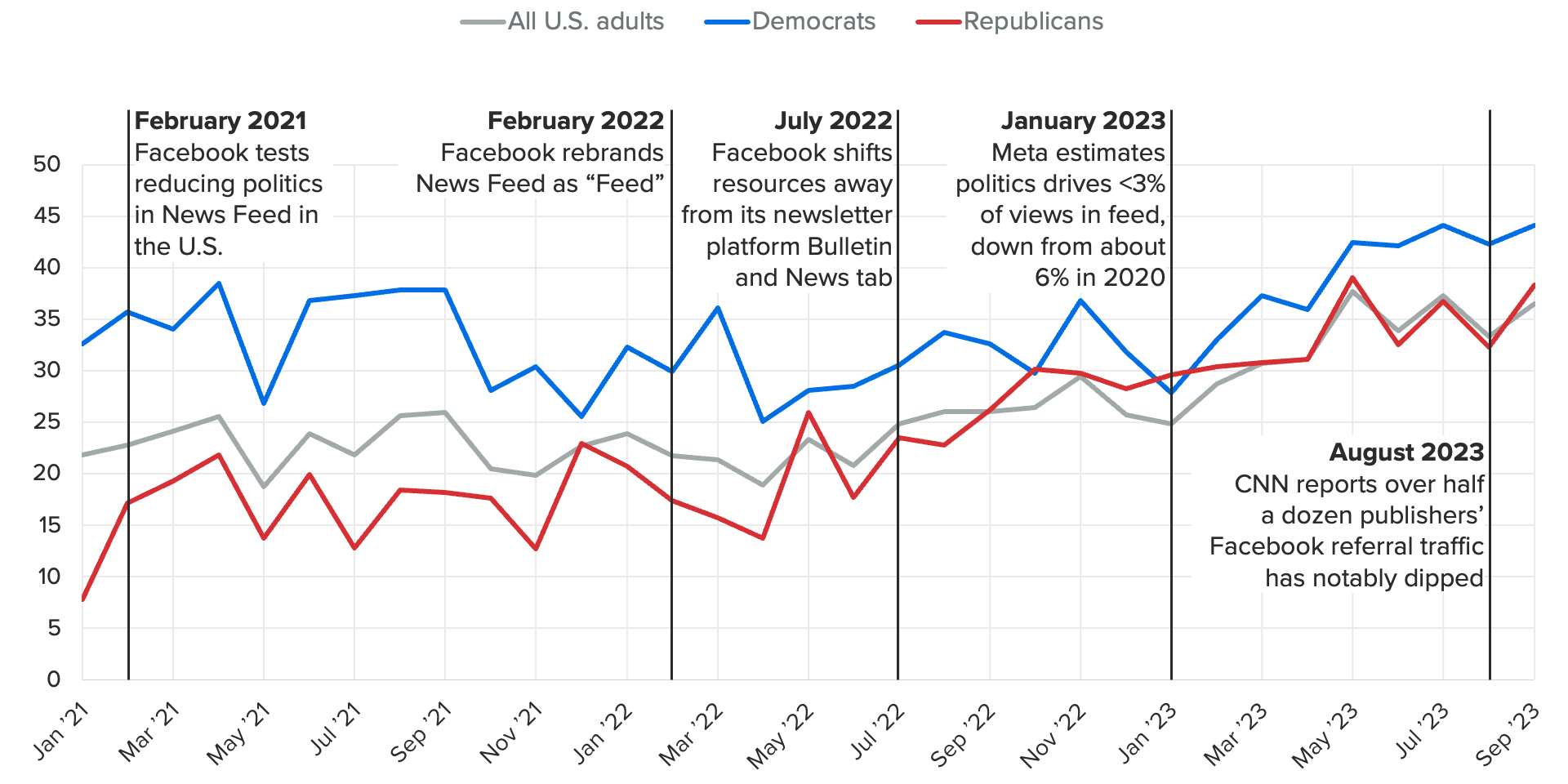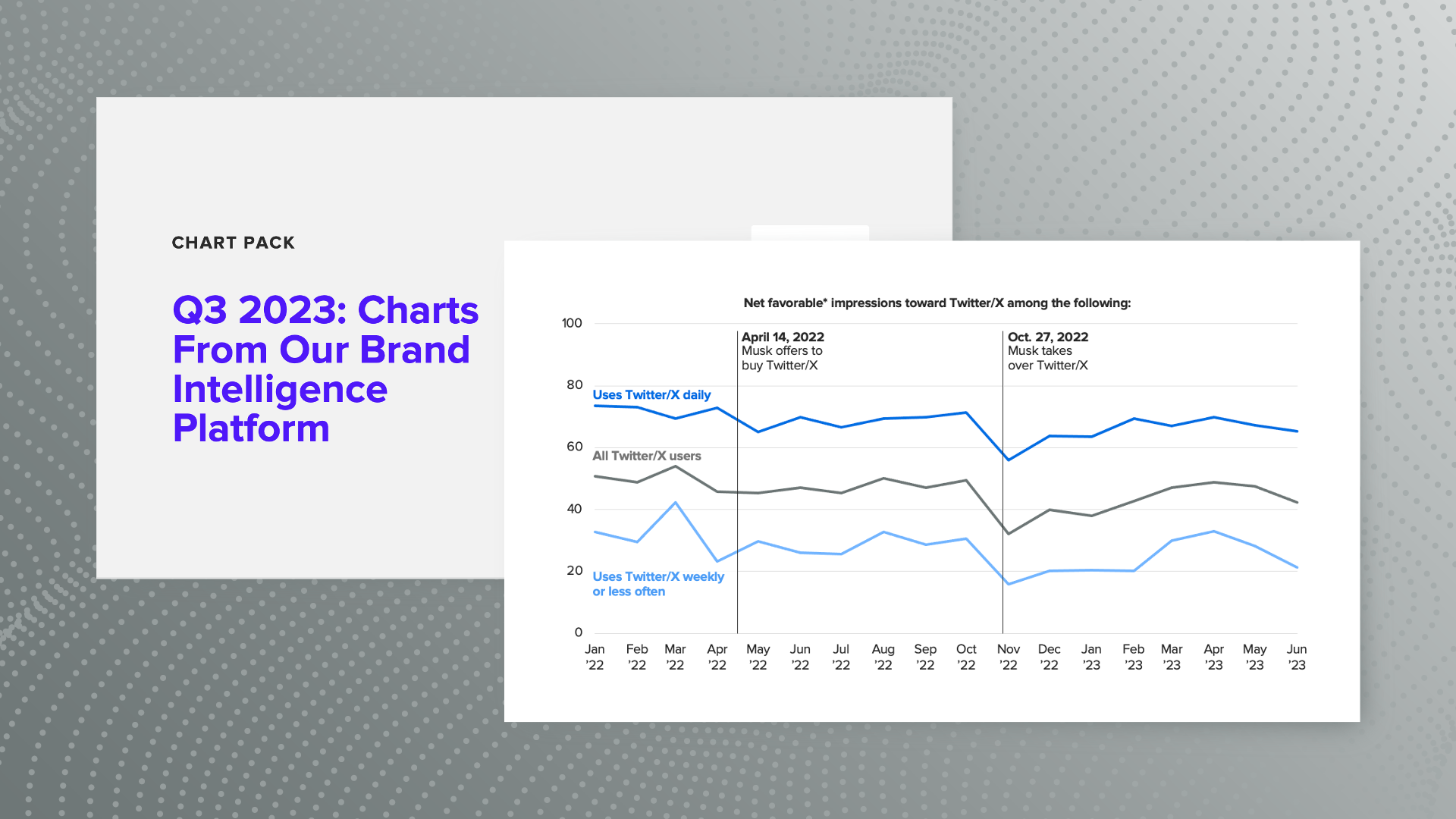People Like Facebook More Now That It’s Less Newsy

Source: Morning Consult Brand Intelligence
For the latest entertainment industry data and analysis, sign up for our entertainment content alerts.
With TikTok’s current dominance, it’s easy to forget the level of scrutiny Facebook received prior. Between data privacy, misinformation and antitrust headaches, favorability toward Facebook had steadily declined leading up to the early pandemic days.
Facebook has since embarked on many initiatives to repair its image, but pivoting away from politics and news has been one of its clearest.
Referrals driven by Facebook to top news sites in August 2023 was over 80% lower than it was in August 2020, per Similarweb. Campbell Brown, who led Facebook’s big push into news, announced last week she is stepping down from her Meta post in another public sign of this shift.
De-emphasizing news has helped Facebook win back consumers. Morning Consult Brand Intelligence data shows that net favorability of Facebook among all adults, Democrats and Republicans has steadily increased since 2021.
The redemption arc of Facebook may be surprising because it’s rare for such a mature platform to sustain a positive shift in favorability for so long, let alone a notable boost in positive sentiment at all. It would be fair to assume that after the various brand gaffes Facebook had suffered in its lifetime, many negative opinions would be set.
While favorability isn’t directly correlated with user growth — amid declining favorability between 2017 and 2020, Facebook’s U.S. and Canada daily user count was mostly flat or slightly up quarter-over-quarter — it’s still an indication of where users are willing to spend their time relative to other social players. Additionally, consumers are likely more receptive to ads on platforms that they hold a favorable opinion on versus those they dislike.
With favorability notably increasing across party lines, this suggests that a downtick in political news has effectively minimized the number of divisive posts users encounter. It also means that Facebook should continue to de-emphasize political news content, which is in line with Morning Consult analysis that finds that distributing news hurts trust in social networks; we argued in 2022 that platforms should consider becoming more reliant on light-hearted content.
Social platforms beyond Facebook will start prioritizing entertainment content over politics
People are always going to discuss major news events on social, but platforms still choose what to amplify. Incentivizing commentary around pop culture and sports, rather than something like the presidential election, can keep a platform newsy but light-hearted. Meta Chief Executive Mark Zuckerberg recently acknowledged political content is more “cutting” than other types of news like sports updates.
With this reality, news publishers need to prepare for a future where more major social platforms emphasize entertainment over information. This means platforms need to be more open to forging nontraditional partnerships, like those with news influencers Kelsey Russell, who can break down news events in videos with a conversational and comedic tone.
This memo utilizes data from Morning Consult Brand Intelligence, our flagship platform that every day asks thousands of consumers about core metrics for over 4,000 brands and products around the world. MCBI subscribers can further explore the data here. To learn more about MCBI, request a demo here.
Kevin Tran previously worked at Morning Consult as the senior media & entertainment analyst.


